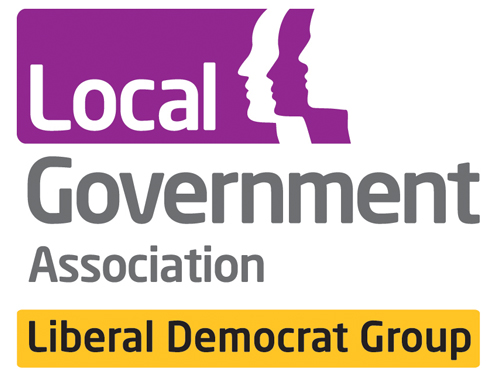
Losing access to the European Investment Bank (EIB) after Brexit risks a lasting negative impact on investment in our communities, including reducing the number of homes that will be built, Liberal Democrats in local government have warned.
As a member of the European Union and a shareholder contributing into the EIB, the UK currently has access to the EIB’s loans and guarantees, which typically help fund small and medium-sized enterprise (SME) development and major infrastructure loans such as housing. The UK has been the fifth largest recipient of the EIB.
The EIB typically offers a cheaper long-term source of finance than is available from many private equivalents, and is often willing to invest in slightly higher risk projects than many commercial lenders, whilst providing greater protection to the public element of the investment.
Under the UK/EU draft withdrawal agreement, from the beginning of the transition period next year, the UK will no longer be eligible for billions of pounds worth of EIB monies reserved for EU members.
Existing projects should continue, however there is also evidence that since the Brexit vote, there has been a significant decline in those seeking EIB support for investing in UK infrastructure. Since the EU referendum, only 39 deals with the UK (collectively worth just under €3.1 billion) have been finalised. In the 18 months before, there were 74 deals, (collectively worth over four times as much, €13.5 billion).
Once the UK leaves the EU, we will no longer be able to utilise the EIB in the same way. Losing access to well-adapted loan funding and guarantees driving regeneration could make new housing developments more difficult to deliver, impacting on the availability of new homes and will have a significant detrimental impact on the ability of registered providers to deliver new affordable housing. This may also impact on council tax receipts, lowering the revenue councils will have to fund essential services.
Whilst there have been initiatives on the UK side, such as the launch of the Government-owned British Business Bank in 2014 to support SMEs, there is as yet no detail or assurances that it will match the significant sums currently coming to the UK from the EIB, or the favourable conditions as regards supporting higher risk projects.
Examples of EIB investment are:
- The Housing Finance Corporation have secured a €1 billion loan from the EIB to expand the Affordable Housing Finance Programme which will build over 20,000 affordable homes in the UK across diverse areas such as Wigan, Scarborough, Bradford and Cambridge.
- The EIB has provided a €700 million loan to part fund the Thames Tideway, which will improve the sewage infrastructure of the Thames and is the largest investment of its kind in the UK.
- House-building is already significantly behind the target of 300,000 a year that the Government has set and losing access to EIB funding could make this even more difficult to achieve.
The LGA is therefore calling on the Government to provide immediate assurances that equivalent lending alternatives will be made available to councils and SMEs, and for the Government to allow councils to self-finance new homes, lift the housing borrowing cap, and allow councils to use 100 per cent of the receipts from Right to Buy sales to invest in new homes.
Cllr Howard Sykes, LGA Liberal Democrat Group Leader, said:
“Losing access to the cheap long-term financing that the European Investment Bank provides could have a lasting effect on investment in our communities.
“Major affordable housing developments and large infrastructure projects, as well as smaller investments and SMEs, have benefitted enormously from this access. Councils are raising legitimate concerns that losing this funding source could result in a reduction of housing developments, council tax receipts and overall revenue of councils that is used to fund essential services.
“The LGA is calling on the Government to provide immediate assurances that equivalent lending alternatives will be made available to councils and SMEs as well as allowing councils to self-finance new homes, lifting the housing borrowing cap, and allowing councils to use 100 per cent of the receipts from Right to Buy sales to invest in new homes to help mitigate the potential problems currently faced by access to the EIB being reduced.”
NOTES TO EDITORS
- €1 billion joint financing of building of 20,000 new affordable homes: The Housing Finance Corporation has secured a €1 billion loan from the EIB to expand the Affordable Housing Finance Programme. This will build over 20,000 affordable homes in the UK across diverse areas such as Wigan, Scarborough, Bradford, and Cambridge. Find out more.
- Part investment in Thames Tideway Tunnel: The EIB has provided a €700 million loan to part fund the Thames Tideway. This investment is to improve the sewage infrastructure of the Thames and is the largest investment of its kind in the UK. Find out more.
- The UK has been the fifth largest recipient of the EIB. Find out more.
- Since the EU referendum, only 39 deals with the UK (collectively worth just under €3.1bn) have been finalised. In the 18 months before, there were 74 deals, (collectively worth over four times as much, €13.5bn). EIB officials, however, say UK lending is declining because there is less demand for EIB finance. The EIB President, Werner Hoyer, says that UK projects are not requesting EIB finance because of uncertainty about the UK’s future relationship with the EIB. Find out more.